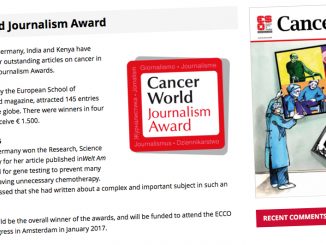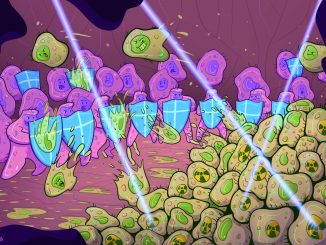According to an article published in the journal Annals of Oncology, men with early stage testicular cancer (Testicular Cancer in Clinical Stage I, or TC CS I) can be treated with one course of chemotherapy or radiotherapy after surgery without long-term effects on their sperm count.
Testicular cancer is the most common cancer among young men between the ages of 15 and 40, and when it is diagnosed, all patients have the testicle containing the tumor removed, and that surgical procedure is called orchiectomy. The recurrence after the removal of the tumorous testicle decreases. Dr Kristina Weibring, leading author and cancer doctor at the Karolinska University Hospital in Stockholm, Sweden, said that, based on that evidence, they wanted to assess whether postoperative treatment “would affect the sperm count and sperm concentration long term in testicular cancer patients with no spread of the disease”. The urgency is clear: treatment with one course of postoperative chemotherapy has been shown to decrease the risk of relapse substantially, “thereby reducing the number of patients having to be treated with several courses of chemotherapy”, she concluded.
But, does a single cycle of chemotherapy or radiotherapy have a similar effect in men with stage I disease than several rounds in men with more advanced testicular cancer stage do?
To understand it that happens, a cross-sectional analysis was conducted: 182 men aged 18 – 50, diagnosed with TC CS I and who had had an orchiectomy within the past five years, took part in the study between 2001 and 2006. They were treated either in Stockholm or Lund (Sweden). After surgery, they received radiotherapy (1.8 Gy X 14 each, up to a total dose of 25.2 Gy) or one course of chemotherapy (adjuvant treatment), or were managed by surveillance, meaning there was no postoperative treatment. They provided semen samples after orchiectomy but before further treatment, and then six months, one year, two years, three years and five years thereafter.
“We found no clinically significant detrimental long-term effect in either total sperm number or sperm concentration, irrespective of the type of postoperative treatment received”, said Dr Weibring. “Among men who received radiotherapy, there was a distinct decrease in average sperm number and concentration six months after treatment, though not in those who received chemotherapy. However, sperm number and concentration recovered in the radiotherapy group after six months, and continued to increase in all groups up to five years after treatment”.
Because of the young age at diagnosis, several man with testicular cancer are not fathers yet. Many of them might be afraid of the potential risk of infertility caused by chemotherapeutic treatment. These findings should reassure those who need a single cycle only. The authors indeed still recommend sperm banking before orchiectomy.
The Editor-in-chief of Annals of Oncology, Professor Fabrice André, of the Institut Gustave Roussy in Villejuif, France, commented: “This study, together with other research efforts, explores the paths to recovering a normal life after cancer. The finding that one course of chemotherapy has minimal impact on sperm count offers hope for thousands of patients worldwide, but we all must keep in mind that these data are preliminary and will require validation before we can use them in clinics. The next step will be to establish how to predict the toxic effects on sperm count of different chemotherapy regimens.”





